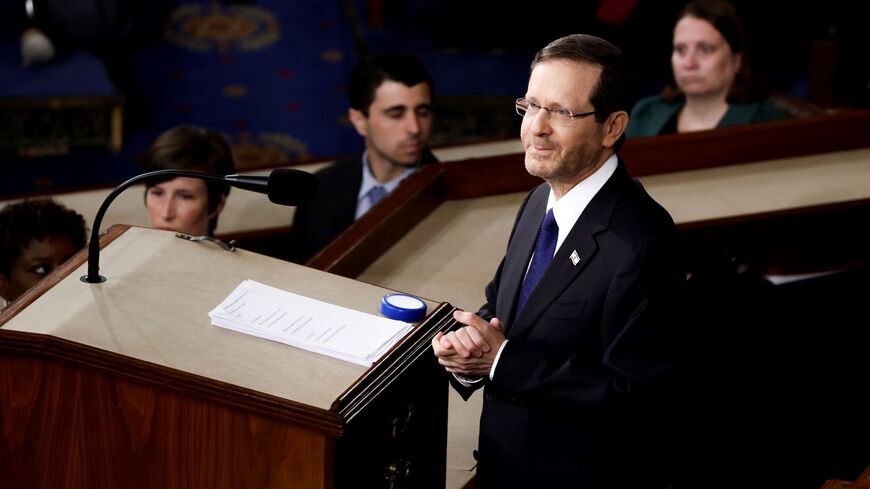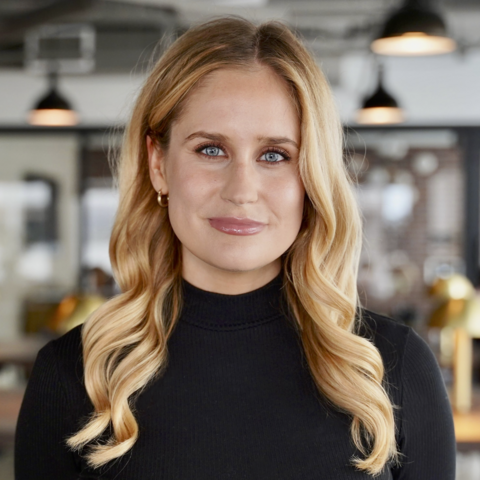WASHINGTON — Israel’s president, Isaac Herzog, used an address to Congress on Wednesday to reassure Washington about the resilience of Israel’s democracy and downplay tensions in its relationship with the United States.
“To us it is clear that America is irreplaceable to Israel, and Israel is irreplaceable to America,” Herzog told a joint session of Congress, later referencing the “mutually beneficial partnership that has withstood challenges and weathered great disagreements.”
Herzog addressed a packed House chamber as part of his two-day visit to Washington, in which he sought to lower tensions between the Biden administration and Prime Minister Benjamin Netanyahu, who in November was elected to lead Israel’s most right-wing and religiously conservative government in its history.
Of primary concern to US officials is the judicial reform plan pushed by Netanyahu and his allies, which has set off sweeping street protests that have continued for months. Critics fear the proposed changes would weaken the independence of Israel’s courts and personally benefit Netanyahu, who is on trial for corruption.
Just hours before Herzog spoke, hundreds of Israeli military reservists in Tel Aviv declared they would not report for duty in protest of the planned judicial overhaul.
Herzog, whose role as president is largely ceremonial, has led efforts to find a compromise agreement and avert a constitutional crisis in Israel. During Wednesday’s speech, the Israeli president alluded to the contentious plan but avoided any outright criticism of it.
“We are working through our issues, just like you,” Herzog said. “I know our democracy is strong and resilient. Israel has democracy in its DNA."
Elsewhere in his speech, Herzog called Iran’s nuclear program the greatest shared challenge of the United States and Israel, and said “Israel's hand is extended” to countries, including Saudi Arabia, that wish to join the Abraham Accords.
Herzog, speaking less than a month after Israel mounted a large-scale military operation in the West Bank city of Jenin, said he yearned for Israel to make peace with its neighbors but “Palestinian terror" remains an obstacle.
Itamar Rabinovich, a former Israeli ambassador to Washington, described Herzog’s address as conventional, unsurprising and unlikely to assuage the Biden administration's concerns over the judicial overhaul.
“The only difference would be if there is a change of policy by the Israeli government, and the government decides to suspend or very significantly reduce the so-called judicial reform,” Rabinovich told Al-Monitor. “And as long as they don't do that, nothing is going to change."
Herzog met with President Joe Biden in the Oval Office on Tuesday, their second such meeting in less than a year. Netanyahu, whose government Biden described recently as “one of the most extremist” since the 1970s, has not been afforded a similar photo op.
On the eve of Herzog’s visit, Netanyahu finally got his invitation. In their first phone conversation since March, Biden and Netanyahu “agreed that they will meet, probably before the end of this year,” John Kirby, a spokesman for the National Security Council, told reporters Monday.
The White House didn’t say where or when the meeting would take place, raising the possibility they could meet on the sidelines of the UN General Assembly in New York in September, rather than in the Oval Office.
Aaron David Miller, a senior fellow at the Carnegie Endowment for International Peace and a former State Department Middle East analyst, said the vague invite is an attempt to split the difference.
“[Biden] cannot afford to have the Democratic Party painted by the Republicans as hostile to Israel,” said Miller. “The awkwardness of having Herzog here, and the president not even talking on the phone to Netanyahu, I think pushed the administration to do this.”
Miller also speculated that Rep. Pramila Jayapal’s (D-Wash.) now-retracted comments about Israel being a “racist” state could have played into the outreach to Netanyahu.
In a seeming reference to Jayapal’s comments, Herzog said he is "not oblivious to criticism among friends, including some expressed by respected members of this house” but said that criticism must not question Israel’s right to exist.
"Questioning the Jewish people's right to self-determination is not legitimate diplomacy, it is anti-Semitism," he said.
Herzog’s speech was boycotted by a handful of progressive Democrats over Israel's treatment of the Palestinians. A day earlier, the House of Representatives overwhelmingly passed a resolution affirming support for Israel.








